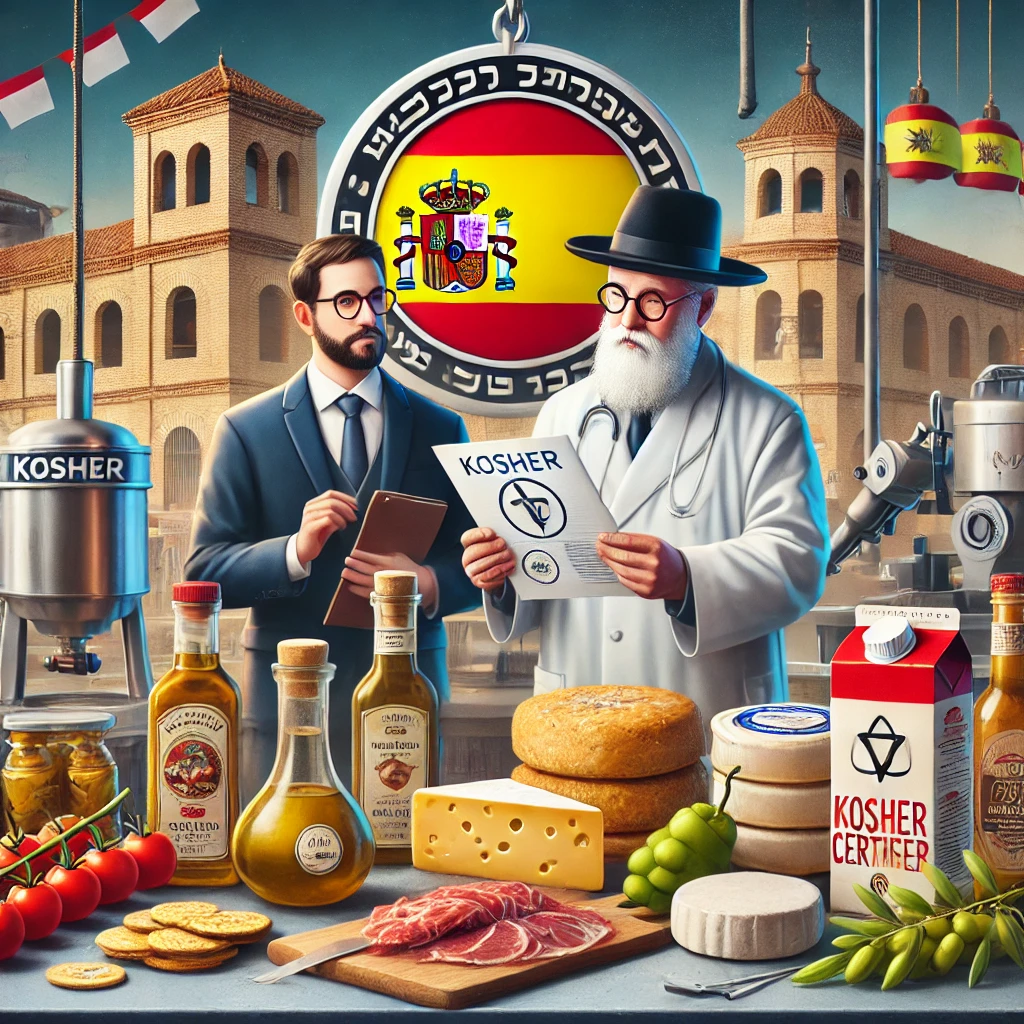
Kosher certification is more than just a label; it’s a testament to the adherence to a set of dietary laws rooted in Jewish tradition. This certification assures consumers that the food products they’re consuming meet stringent standards of preparation and processing, aligning with kosher dietary laws. It’s a mark of trust and quality, respected not only by those who follow these dietary guidelines for religious reasons but also by many who seek out kosher products for their perceived quality and safety standards.
Spain, with its rich culinary history and diverse food industry, presents a unique landscape for kosher certification. The country’s deep-rooted food traditions combined with a growing interest in global cuisines create an intriguing backdrop for the integration of kosher practices. As Spain continues to make its mark on the global food scene, the demand for kosher-certified products increases, highlighting the relevance of kosher certification in this vibrant cultural setting.
The journey to kosher certification is meticulous, involving several key steps to ensure that products meet all the necessary requirements. It typically begins with an application process, followed by an in-depth review of the ingredients, production facilities, and processing methods. Kosher certification agencies, guided by rabbinical expertise, conduct thorough inspections and audits to verify compliance with kosher laws.
Rabbis and kosher inspectors play a pivotal role in the certification process. Their expertise and vigilance ensure that all aspects of food production align with kosher standards. These professionals are responsible for examining the ingredients, overseeing the production processes, and ensuring that there is no cross-contamination with non-kosher items. Their approval is crucial for a product to be deemed kosher, serving as a bridge between traditional dietary laws and modern food practices.
Spain’s food industry, known for its rich flavors and diverse offerings, intersects with kosher requirements in unique ways. The country’s famed cured meats, cheeses, and seafood pose particular challenges for kosher certification, given the strict dietary laws regarding animal products and their preparation.
In Spain, where the food culture is deeply ingrained and regional cuisines vary significantly, integrating kosher practices can be challenging. Logistical hurdles, such as sourcing kosher ingredients and modifying traditional recipes to meet kosher standards, are common. Additionally, the limited awareness of kosher principles among the general population can pose challenges for certification and acceptance.
Spanish cuisine’s influence on kosher food production is notable. The adaptation of iconic Spanish dishes to comply with kosher laws showcases a blend of tradition and innovation. This cross-cultural culinary exchange not only enriches the kosher food market but also introduces Spanish flavors to a wider audience, demonstrating the versatility and adaptability of kosher food practices.
By understanding the importance of kosher certification and recognizing the unique aspects of this process in Spain, we can appreciate the intricate balance between tradition and modernity in the global food industry.
Inspections in Spain might need to accommodate local food processing practices and regional specialties, ensuring they meet kosher guidelines. Supervisors familiar with both kosher laws and Spanish culinary practices are essential for the nuanced understanding required in this context.
Comprehensive documentation is crucial, detailing every aspect of production, ingredient sourcing, and compliance measures. Spanish producers must navigate the local regulatory environment in harmony with kosher certification requirements, ensuring all legal and religious standards are met.
Kosher certification in Spain represents a blend of tradition and modernity, reflecting the country’s rich culinary heritage while adapting to meet the demands of a global food market. Despite the challenges, the benefits for Spanish producers are significant—opening new markets and enhancing brand reputation. The future of kosher certification in Spain is bright, with continued growth in demand and availability, both domestically and globally. Contact us today.